Wet Play
It felt more like November than June today! Lunch time was wet play so the children were busy in the classroom having fun – and learning. Here are some pictures:

Jessica made a repeating pattern from Lego. I asked her what the 58th colour would be and she said, ‘It will be red because all the even numbers will be red.’ Fantastic, Jessica!
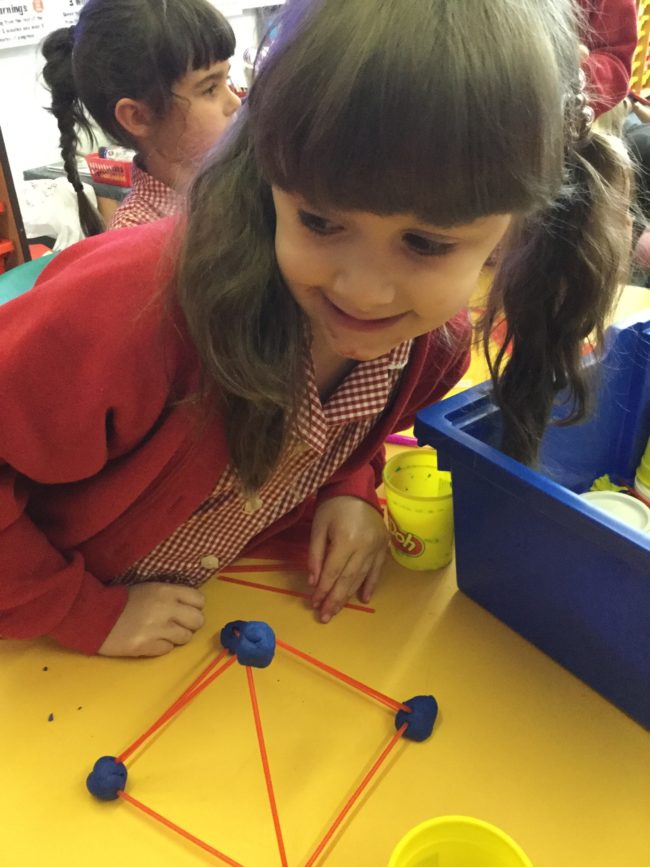 ‘I made a pyramid!’
‘I made a pyramid!’
Yorkshire Primary PE and Sport Premium Awards 2016
At the Yorkshire PE and Sport Premium Awards 2016 this afternoon, hosted by Olympic bronze medallist Steve Parry, we received our award for West Yorkshire winners in the Broader Sporting Experience category.
‘Your application fulfilled criteria, sustainability and creating a measurable impact on pupils.’
Find out more about how we invest our PE Premium.
Our pupils who attended, nominated by staff for their dedication to school sport, were a great credit to the school.
‘I feel proud to be from Moortown Primary School.’
‘I am proud that Moortown won this award.’




Hotshots total
Thanks to your generous sponsorship, we have raised £635.20 from our Hotshots event during the Money Matters themed week. The money will be split between our current school charities, Yorkshire Air Ambulance and Leeds Mind.
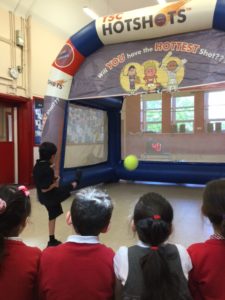
Money from our other fundraising event from the themed week, our penny trail, is still being counted!
School Saving Accounts
Our next paying in session for children with School Saving Accounts is this week.
- Wednesday 22 June 3.15pm

You’re welcome to accompany your child to pay in their money. If you can’t come, or maybe your child is at an after-school club, you can bring money to the office in a sealed envelope marked ‘School Saving Account’ with your child’s paying in card and this will be deposited into their account.
Also, it’s not too late to open an account. Please ask at the office for an application form.
The next paying in session this term is Wednesday 20 July 3.15pm.
Money Matters Homework
We tried to choose a few pieces of homework to show off on our class news but we ended up choosing all of these.
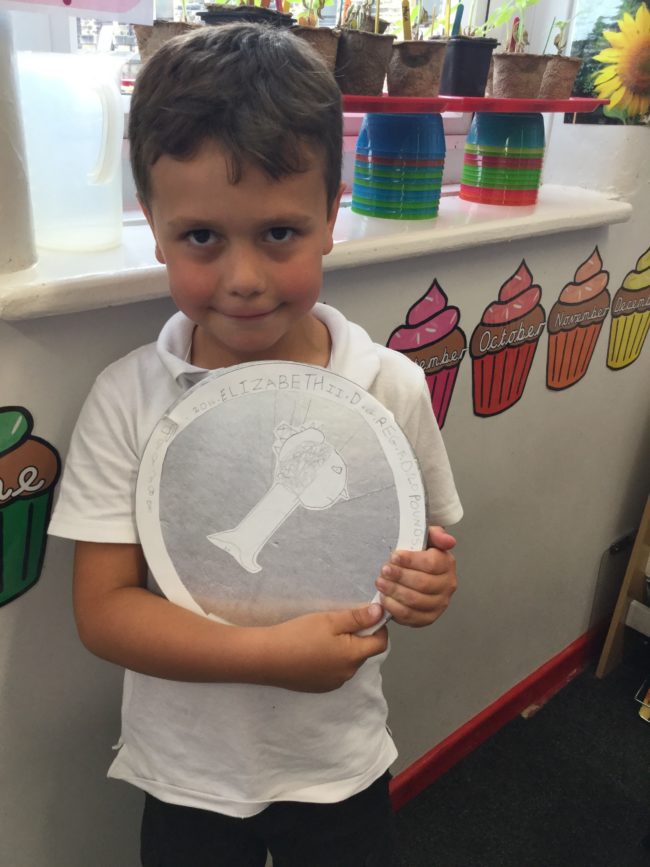
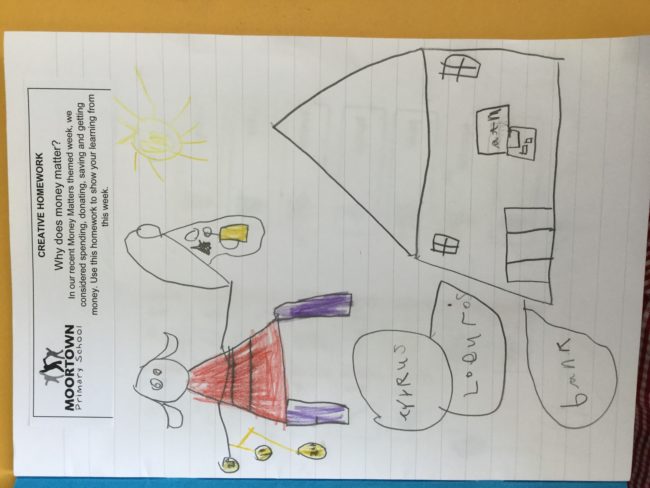
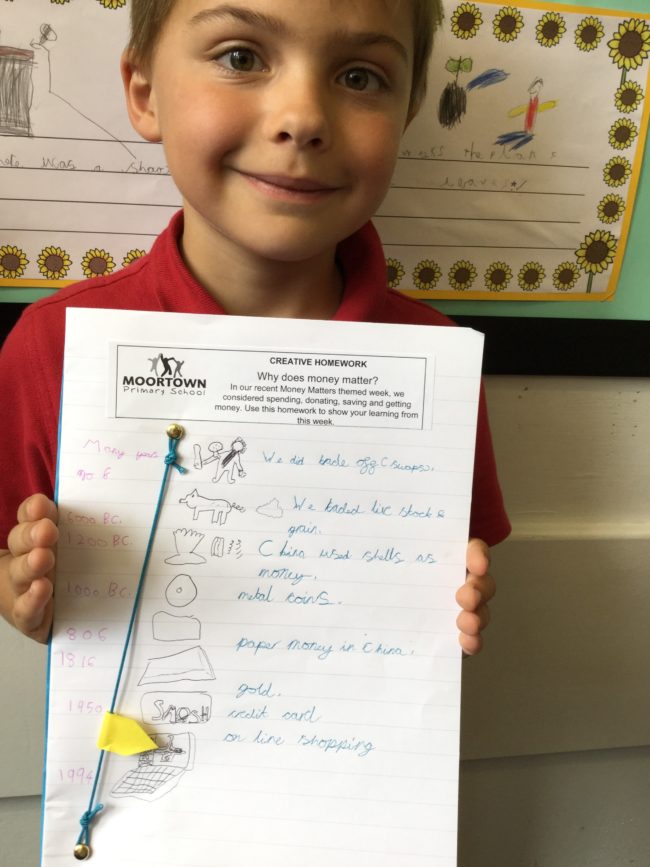
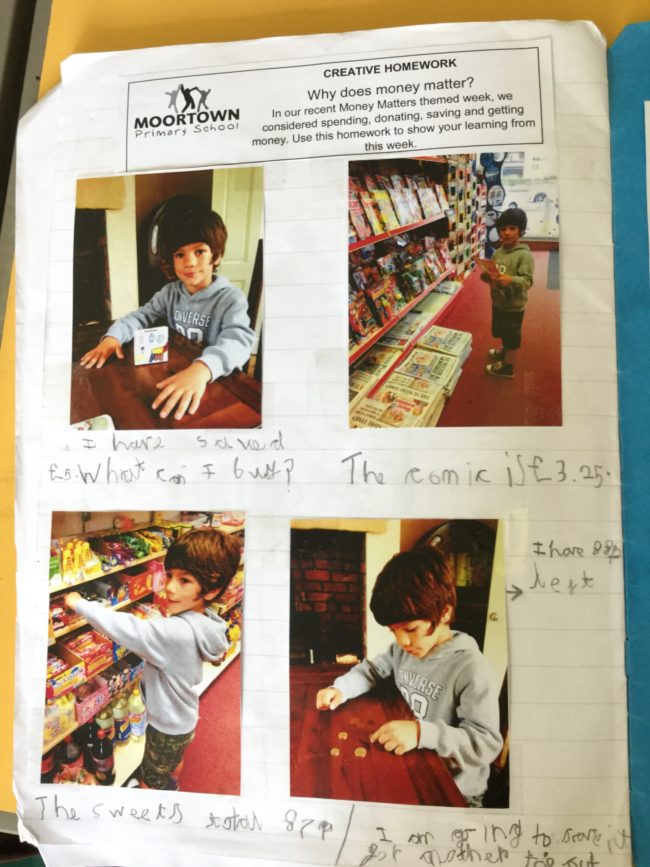
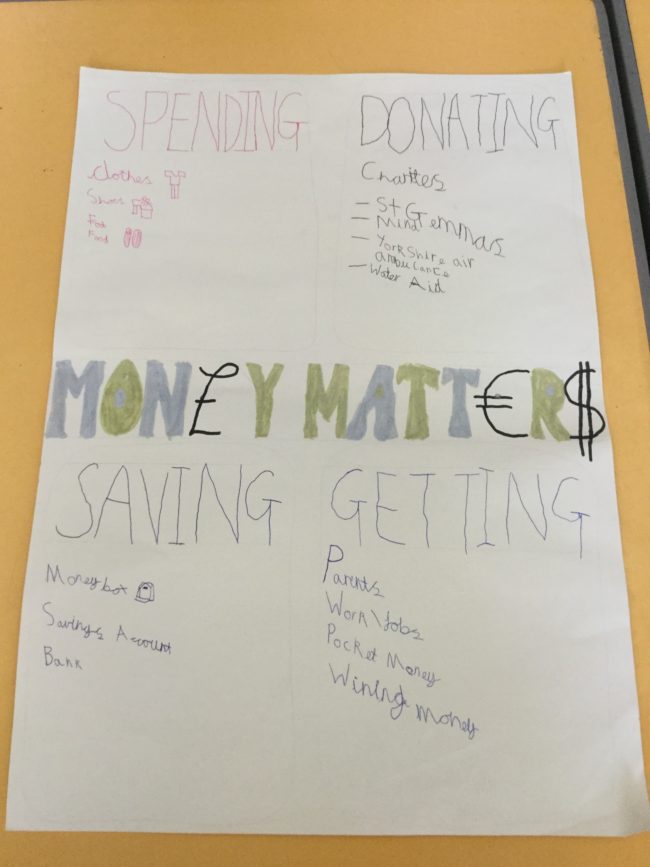
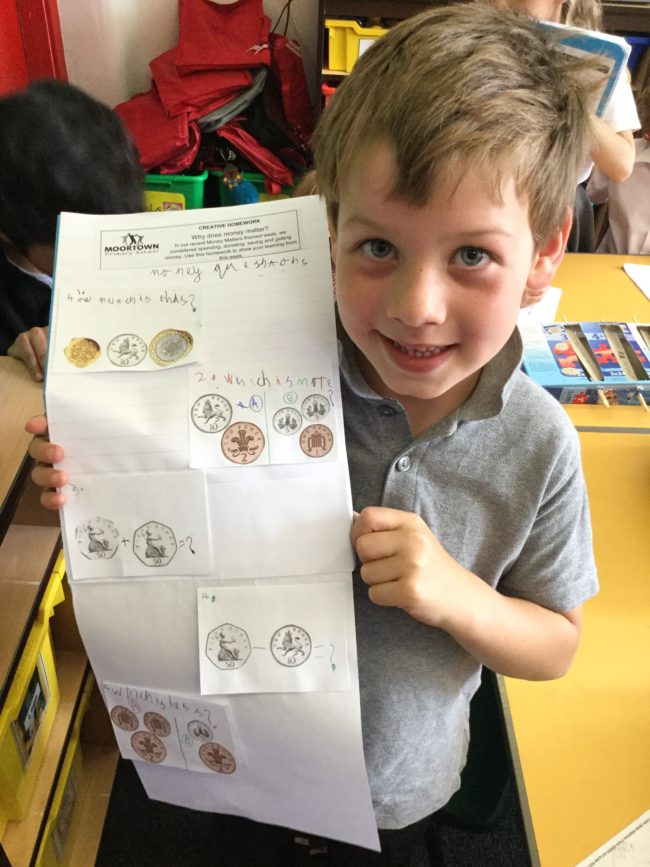
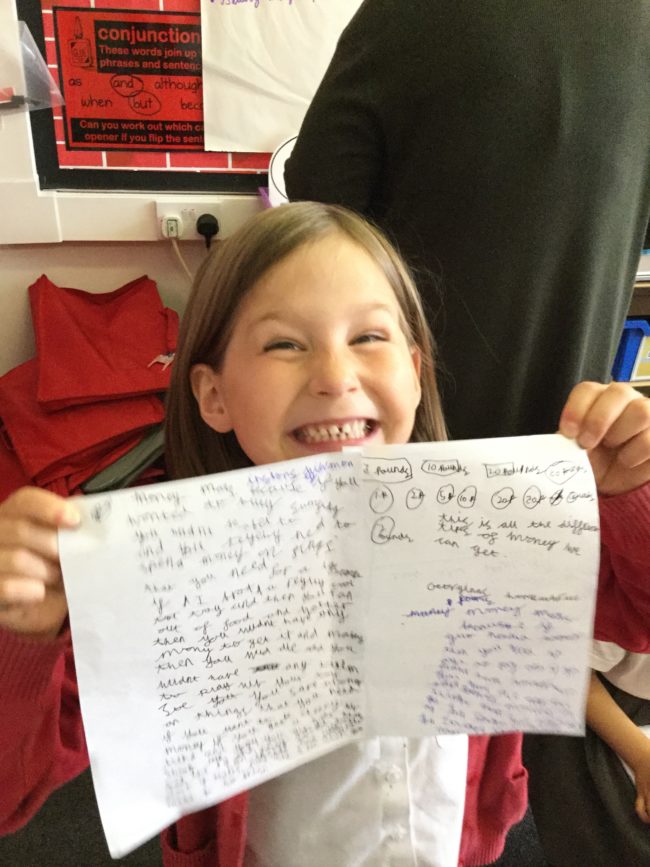
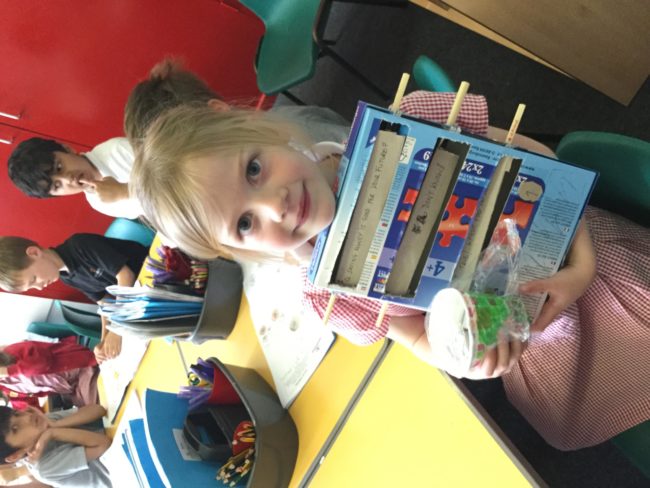
History – toys
We are continuing to learn about the history of toys and how toys have changed over time. Today, we looked at how some toys have survived the test of time but that have still evolved in some way. Examples are dolls, teddy bears and toy cars. The children looked at pictures of these toys from the early 1900s – present day and ordered them using their historical knowledge.
Then, we looked at a painting entitled ‘Children’s Games’ which was painted by Pieter Bruegel in 1560. It shows over 80 games being played in a town square, some of which children still play today. The class really enjoyed searching for all the games being played using magnifying glasses.
Perhaps you could create the opportunity for your child to ask grandparents or older relatives about toys which they played with when they were young.

English – instructions
We are learning all about instructions. We have already learnt about the importance of instructions being in the correct order and being clear (just ask your child about what happened when we tried to make a jam sandwich with unclear instructions)!
Now we are beginning to think about writing our own instructions. Today, we looked at imperative verbs, or ‘bossy’ verbs. These are verbs which create an imperative sentence, i.e. a sentence that gives an order. We played a game which we called ‘bossy boots’ to help us to identify and use imperative verbs.
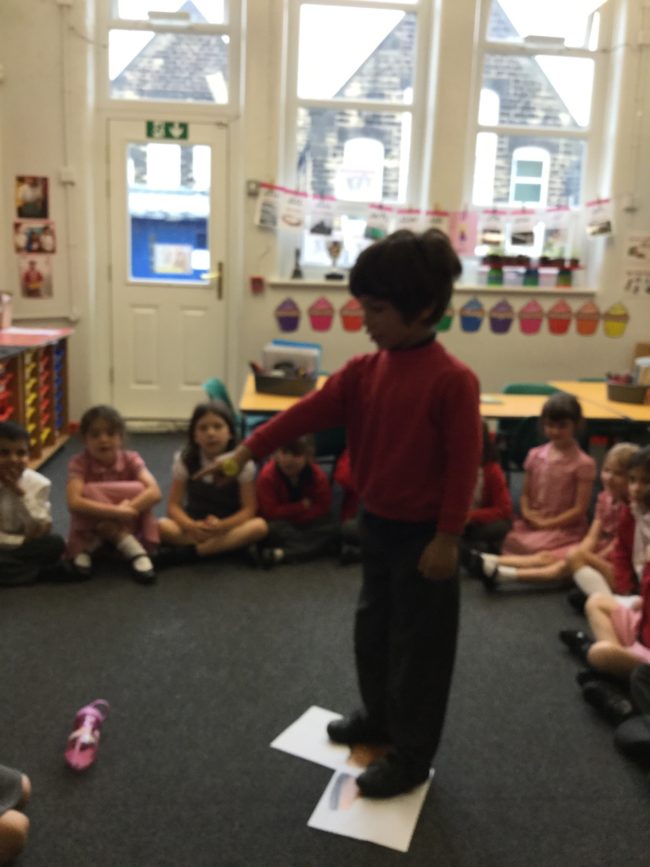
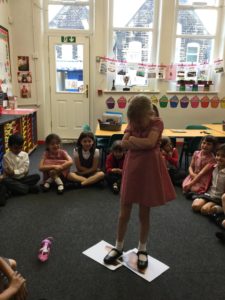
I gave the ‘boss’ a verb and they had to say it in a sentence to be bossy. We had some very bossy characters!
Rio Challenge
This week, we have launched skills drills Rio Challenge. Linked to the upcoming Rio Olympics, pupils can attempt a series of ten timed sports drills based around core skills from different Olympic events. These include hockey, gymnastics, rugby and athletics.
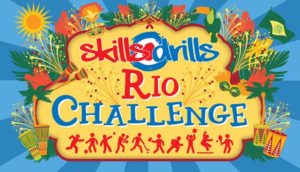
Children can be part of this online competition against their peers and other schools and we will be uploading times for the quickest drills.
The drills will be carried out in PE lessons and at lunchtime. You could even have a go at home.
Rio challenge drills are led by Sports Leaders at lunchtime.



Hockey
We’re learning the basics of hockey in PE this half term. This week, we’ve been learning how to hold the hockey stick. This has been a real challenge for most children!
The way that most children have found helpful is this:
Imagine you are on a bike and hold the imaginary handlebars. Next, turn your right fist upside-down. Now we are ready to hold the stick! The left fist goes at the top and the upside-down fist goes nearer the bottom.
Please make sure that your child has shorts for PE as children in long trousers are getting too hot.
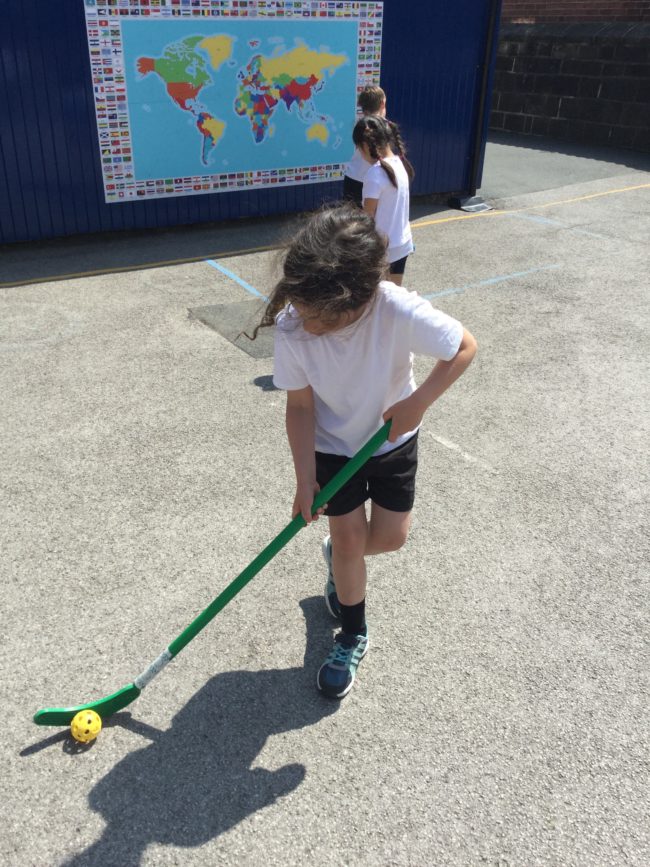
Rocket seeds
Our rocket seed experiment came to an end on the last Friday before half-term when we completed our final measurement. We’ve now submitted the results to the Principia mission and they’ll add what we found to the results of all the other schools taking place.

Having looked at the information we’ve gathered, which do you think are the seeds from space?

When all of the data has been collated, the agency will be in touch with us to let us know what they found out and finally tell us which seeds are which!